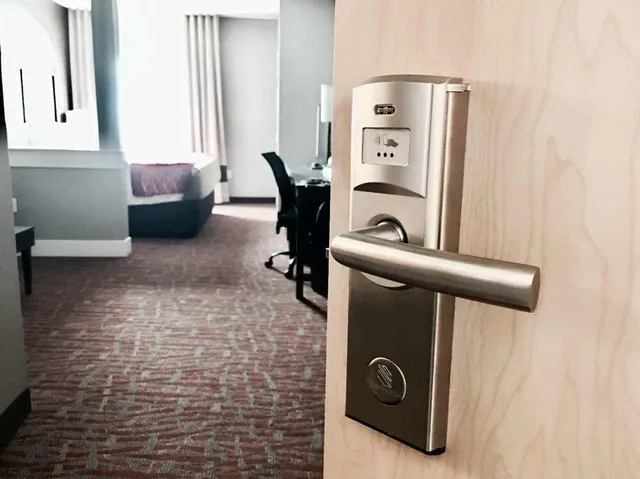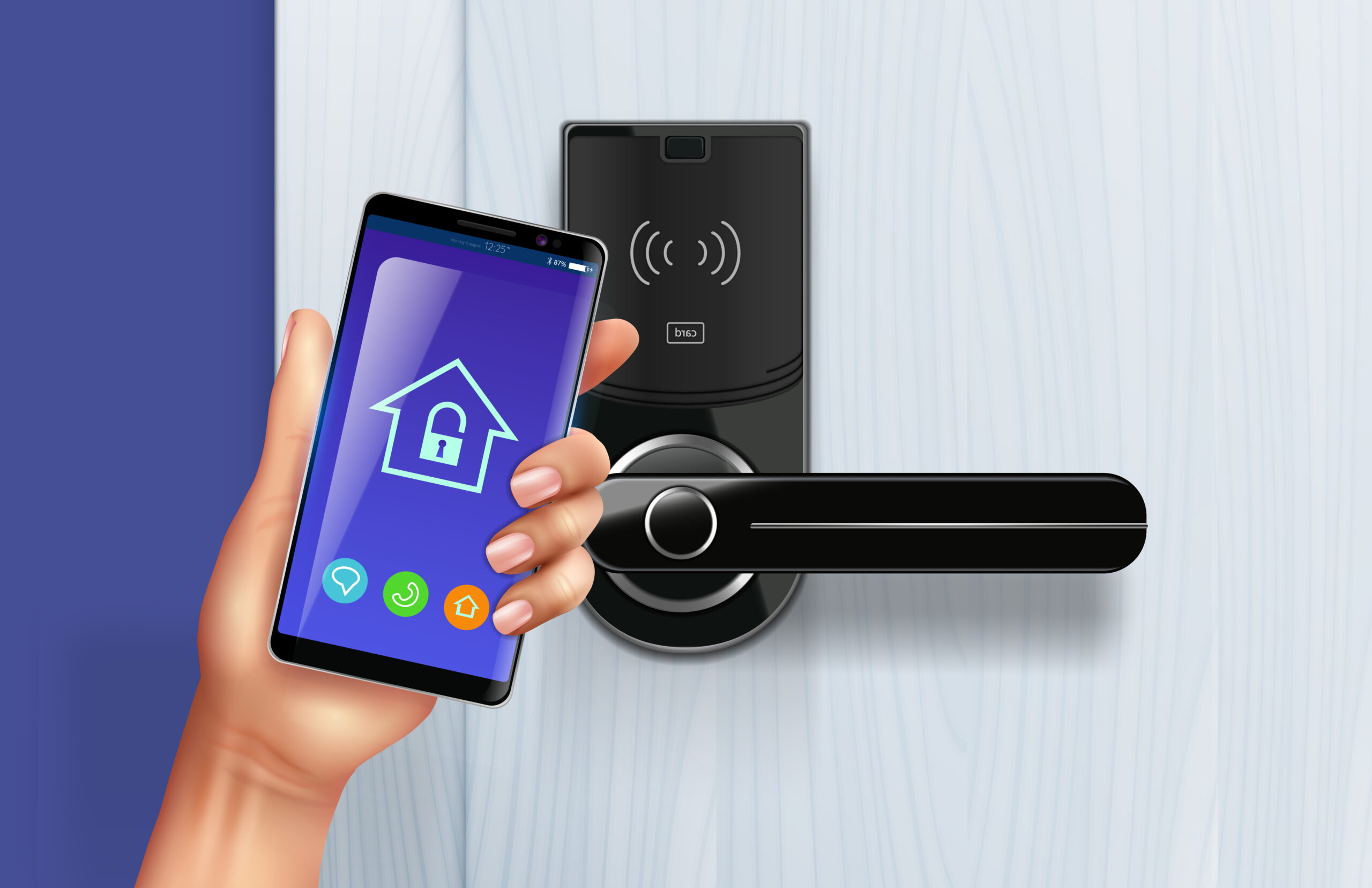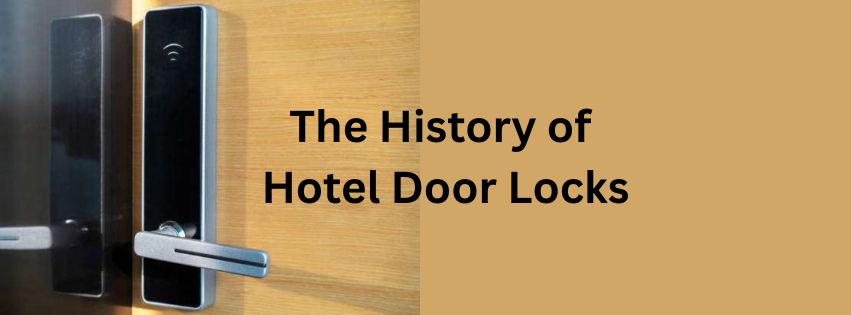
The History of Hotel Door Locks: From Traditional Keys to Smart Technology

Introduction
Hotel security is a crucial aspect of the hospitality industry, and door locks play a significant role in ensuring the safety of guests and their belongings. Over the years, these locks have undergone significant changes, evolving from simple mechanical keys to today’s advanced smart technology. This shift demonstrates how our perceptions of security, convenience, and the guest experience have evolved.
In this blog, we’ll explore the history and evolution of hotel locks, from the early days of traditional keys to the era of key cards, electronic locks, and smart technologies.
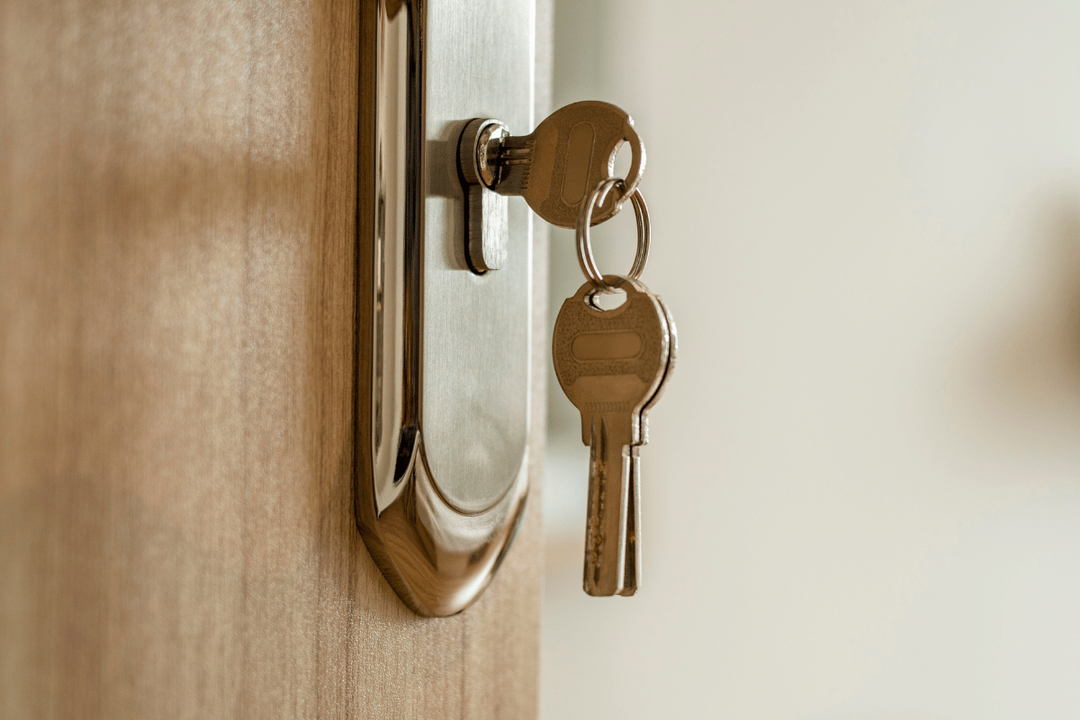
The Early Days: Traditional Hotel Locks
In the early days of the hotel industry, security was much simpler but also more basic. Hotels typically relied on traditional mechanical locks. These locks used metal keys and required manual operation. Guests would receive a physical key upon check-in, which they would use to unlock their room door.
These traditional locks were quite simple but had their limitations. The metal keys were bulky and could easily be lost or misplaced. Additionally, the security level was relatively low, as a copy of the key could be made with relative ease. Although many hotels had locks with multiple pins or bolts to improve security, the overall system was not foolproof.
Despite these shortcomings, traditional locks remained in use for many years, as they were the best available option for securing hotel rooms.
The Rise of Key Card Locks: Convenience and Enhanced Security
As technology advanced, so did the need for more secure and convenient methods of locking hotel doors. Key card locks revolutionized hotel access in the 1970s, especially when companies like VingCard reshaped hotel key systems with their innovative hole-card technology.
Key card locks use a plastic card with a magnetic stripe or chip to open the door. Unlike metal keys, these cards can be set up for a specific room and turned off if lost or stolen. This made hotel stays safer and more convenient for both guests and staff.
Guests didn’t have to carry bulky metal keys or worry about someone copying them. Instead, they could use a slim card that sometimes doubled as a payment method or ID. Being able to turn off lost cards also made hotels feel safer.
With the success of key cards in the hotel industry, it became apparent that this technology was the future of hotel security.
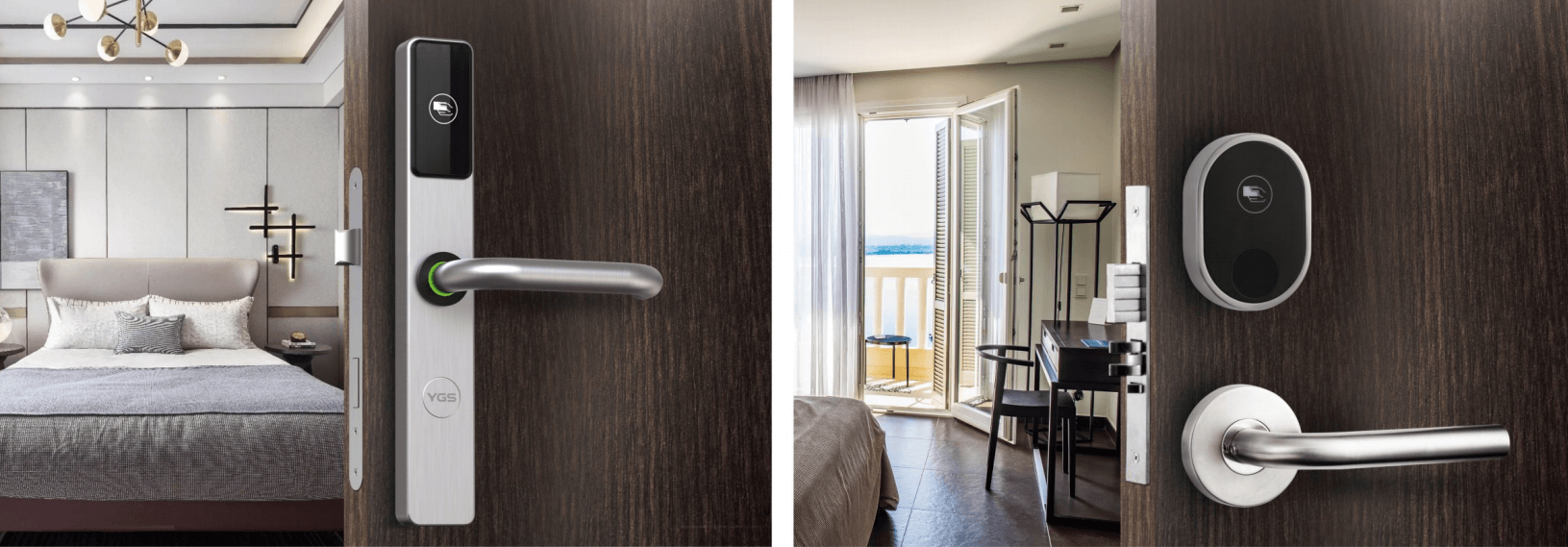
Electronic Door Locks: A New Era of Security
The 1990s and early 2000s saw the emergence of electronic door locks, which further revolutionized hotel security. These locks went beyond the traditional mechanical and key card systems by integrating advanced electronic technology into the locking mechanism. Electronic door locks utilize digital systems to control access to a room. Most often, they use RFID or Wi-Fi to connect with a guest’s key card or phone.
RFID cards are faster and last longer than magnetic stripe cards because they don’t require physical contact with the lock.
They’re also harder to tamper with or copy, which makes them more secure. Even though modern locks are safer, key card systems have still had issues- check out how hackers found weaknesses in hotel key cards, which pushed hotels to improve their security.
A big benefit of electronic door locks is that hotels can manage access from anywhere. They can quickly update who can enter a room or turn off lost cards, making things safer and more convenient than before.
Electronic locks often come with features such as time-based access and enhanced security settings. These upgrades let hotels offer more advanced and personalized security for their guests.
RFID cards are faster and more secure than magnetic stripe cards, offering contactless convenience- RFID hotel locks explained in depth shows how this tech became an industry standard.
And hey! At Design Doctors Studio, we not only specialize in introducing RFID hotel door locks as part of our smart home solutions, but we also offer comprehensive interior design services to create functional and stylish spaces tailored to your needs.
Smart Lock Technology: The Future of Hotel Security
Fast forward to the present, and the latest evolution in hotel door locks is the introduction of smart lock technology. These locks have transformed how hotel rooms are accessed by integrating them with smartphones, tablets, and other smart devices.
With smart locks, guests can use their phones or smartwatches as keys. A quick tap in an app opens the door, so there’s no need for a key card. Frequent travelers especially like not having to keep track of keys or cards. Hotels can also help guests remotely in emergencies or when they need assistance. Plus, smart locks can track when people enter or leave, which helps improve security and gives hotels useful information about guest habits.
Smart locks work with hotel management systems to make things easier for guests and staff. They let hotels offer services tailored to each guest and can even give access to places like the gym or parking lot.
The Benefits of Modern Hotel Door Locks
1. Increased Security
Hotel door locks have come a long way, making hotels much safer. While the goal has always been to protect guests and their belongings, today’s electronic and smart locks utilize advanced security features that are significantly stronger than traditional locks.
2. Enhanced Guest Convenience
Modern hotel locks, especially keyless ones, make things much easier for guests. There’s no need to worry about losing keys or cards. A quick tap on a smartphone is all it takes to get into the room.
3. Efficiency for Hotel Staff
Smart and electronic locks help hotel staff work more efficiently. They can control room access remotely, without needing to handle keys or cards. The data from these locks also helps with housekeeping and maintenance planning.
4. Eco-Friendly Solutions
Switching from plastic key cards to digital keys is also more environmentally friendly. Digital keys reduce plastic waste and help hotels become more eco-friendly.
The Future of Hotel Door Locks
As technology continues to evolve, so too will the systems used to secure hotel rooms. We can expect further advancements in biometrics. As technology changes, hotel security systems will continue to improve. Soon, things like fingerprint or face scanning may become common. These tools will ensure that only the right guest can access a room, adding more security and a personal touch. AI algorithms may analyze guest behavior and detect potential security threats, providing an extra layer of protection.
As smart cities grow, hotel locks will likely integrate with other guest services, such as room temperature, lighting, or even booking a table at the restaurant. This will help create a smoother, more connected experience for guests.
Conclusion
The history of hotel door locks has been marked by continuous innovation, driven by the need for increased security, convenience, and efficiency. Hotel door locks have undergone significant changes over the years, continually aiming to make hotels safer and more convenient.
From simple keys to smart locks, each step has improved the guest experience and operational efficiency. For travelers, this means greater peace of mind and a more streamlined, modern experience when staying in hotels worldwide.
From simple keys to smart locks, each step has improved the guest experience and operational efficiency. For travelers, this means greater peace of mind and a more streamlined, modern experience when staying in hotels worldwide.
Learn more about the top RFID hotel door smart lock systems and discover how these advanced technologies are revolutionizing hotel security and guest experience.
Author: Al-Amin Ifty, Design Doctors Studio @2025


